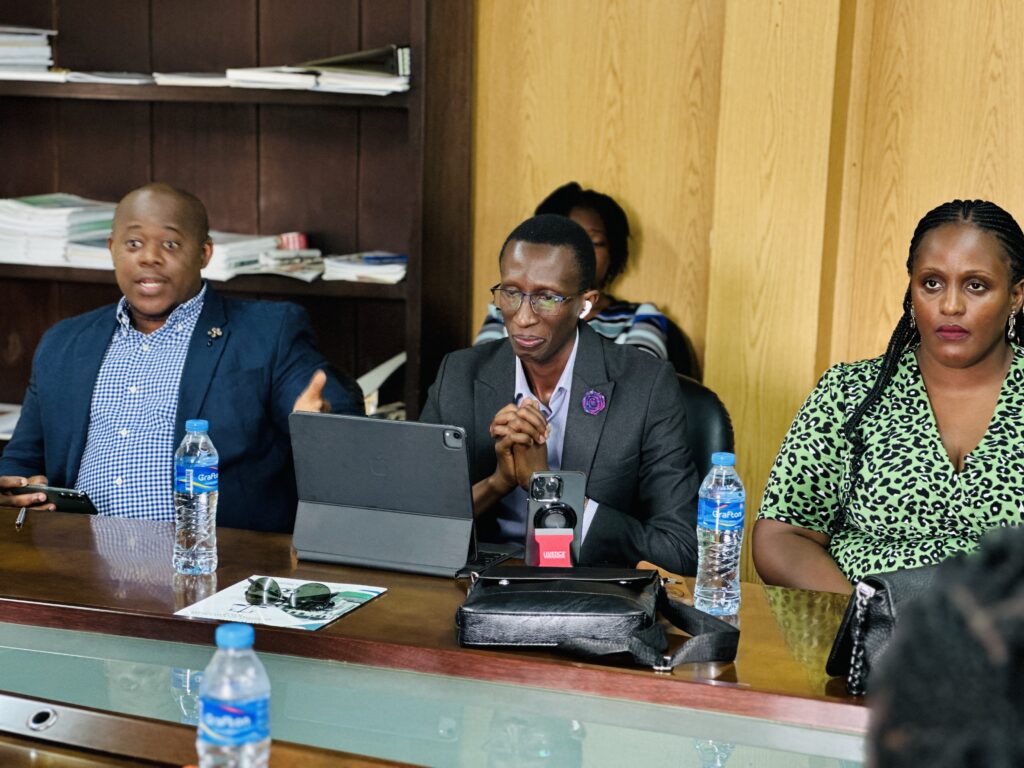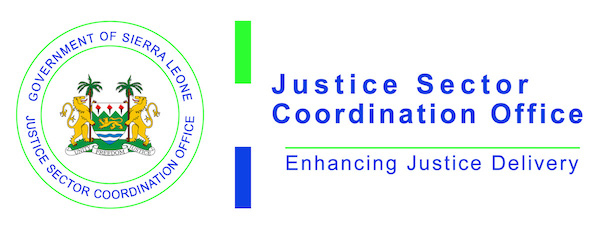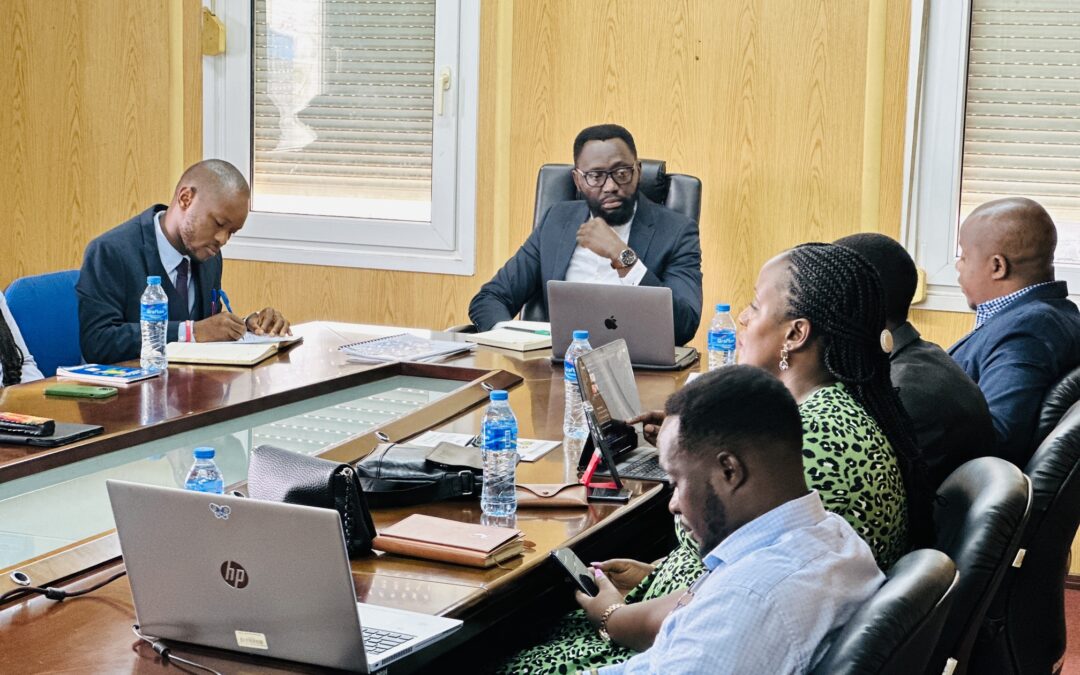Taking the cue from the Hon. Attorney General and Minister of justice in his vision for justice sector reform and digital transformation, staff from the Justice Sector Coordination office met with representatives from the consulting firm – the Canadian Academic and Industrial Network (CAAIN) to begin the design phase of the e-Justice System, a key initiative under the country’s broader Justice Sector Reform Strategy.
The meeting brought together stakeholders and technical experts committed to developing a digital justice system that is efficient, inclusive, and tailored to the unique needs of Sierra Leone. The e-Justice System Design is expected to span over a period of three months, during which a strategic, technical, and sustainable framework will be developed to guide future implementation.
Mr. Haroun Sheriff, the head of delegation from CAAIN, introduced the consulting firm and provided a comprehensive overview of their mandate and methodology, highlighting the consortium’s vast expertise in digital transformation, research, and institutional strengthening. He emphasized CAAIN’s role in developing innovative solutions tailored to the local context and reiterated the network’s commitment to supporting Sierra Leone’s e-Justice ambitions over the next three months.

Mr. Edgar, the team lead from CAAIN, further outlined the purpose of their mission. He emphasized that the project is not merely about introducing technology but about creating a system that truly works for the people and institutions of Sierra Leone.
“This project is about sustainability, not just a solution for today, but one that continues to serve in the years ahead,” he noted.
He reiterated CAAIN’s commitment to designing a solution that reflects the voices and realities of those working in, and interacting with the justice system, including prosecutors, judges, investigators, magistrates, and prison wardens. He also emphasized the importance of the Justice Sector Coordination Office’s role in coordinating the process, engaging stakeholders, and helping document their needs in a structured and meaningful way.
Mr. Edgar also outlined key tasks, techniques, expected challenges, and the overall project timeline, noting that stakeholder engagement will be central to creating a user-centric and sustainable system design.
In his remarks, the Coordinator of the Justice Sector Coordination Office (JSCO), Mr. Shahid M Korjie expressed enthusiasm and readiness to support the process. He underscored the importance of extending the system’s reach beyond Freetown.
“Justice issues are not limited to Freetown. We must understand and address the challenges faced in the provinces if this project is to truly serve the nation,” he said.

Mr. Korjie also reaffirmed that under the leadership of the Hon. Attorney General and Minister of Justice, the JSCO is well-positioned to facilitate coordination and ensure the success of the project.
The JSCO Coordinator also underscored the importance of creating awareness around the digital transformation of Sierra Leone’s justice sector, using the justice sector communications team.
“Justice issues are complex, and language matters. Our communications team will play a crucial role in translating legal reform into public understanding and trust,” he said.
This initiative aligns with the Sierra Leone’s Justice Sector Reform Strategy (2024-2030), which highlights the development of an e-Justice system as a core component in improving access to justice, enhancing transparency, and strengthening accountability.


Bravo to the justice sector in Sierra Leone, this is really commendable for easy access to justice.
Yes oo indeed!! This can help improve the Justice sector in Sierra Leone. Kudos to JSCO